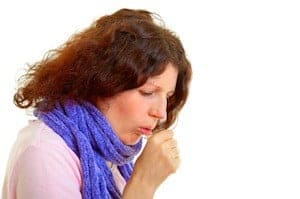Are You Poisoning Your Family’s Air With These Common Household Products?
Spring is here, and with it comes everyone’s (not so) favorite activity: spring cleaning! But as you’re eliminating all that dust and those funky odors, be careful that you’re not making your air worse with man-made chemicals. Are you poisoning your indoor air with household products? See what some of the worst offenders are below.
Air fresheners
With spring comes spring scented air fresheners and sprays.

But according to a study by the National Resources Defense Council (NEDC), a variety of common air fresheners contain phthalates.
These are hazardous chemicals known to cause:
- Hormonal abnormalities (such as interfering with the production of the male hormone, testosterone)
- Birth defects
- Reproductive problems
The NEDC suggests that you should:
- Crack open a window or use fans to maintain air circulation
- Be selective in your choice of air fresheners. The NEDC study shows you a list of the 14 that they tested.
Cleaning products
The EPA states that many cleaning, disinfecting, cosmetic, degreasing, and hobby products contain volatile organic compounds – compounds that are harmful to you and your family’s health.
Are we telling you to never use cleaning products? Certainly not!
You just need to make sure that you use them properly, which you can figure out how to do by reading the warning labels on all your cleaning products. The most important factor is where you’re using the product.
Most warning labels tell you to use these products:
- Outside
- In a well-ventilated area such as your kitchen with an open window
- In a room with an exhaust fan
It is also a good idea to store these chemicals outside of your living area as they can give off harmful fumes even when not being used.
Scented candles
As harmless as these delightful smelling candles seem, most scented candles release toxic chemicals.
One of the problems is with the lead core in many candles. This metal core is used to keep the wick upright and straight when it’s burning. And even though using lead in candle wicks is banned in the U.S., one study found that as many as 30% of candles still release lead into the air when burned.
This airborne lead may be inhaled or deposited onto floors, furniture, and other surfaces where children may be exposed to it. That’s not good considering that low levels of lead in your body can impair mental and physical development.
Also, many candles contain paraffin wax, which emits toxic chemicals when burned.
Watch what you use
Don’t let spring cleaning backfire on you with man-made chemicals. Watch what you use and how you use it.
You can learn more about pollutants in your home in our blog post: “5 Sources of Major Pollutants That Ruin Your Home’s Air Quality.”
At Service Champions, we’re committed to your health and comfort. If you’re looking for a safe way to clean your home’s indoor air, we have several air quality products that can help. Contact us online for more information.

